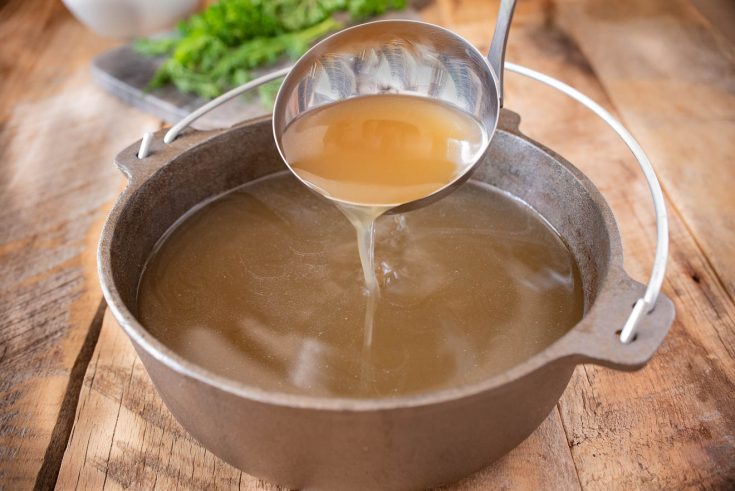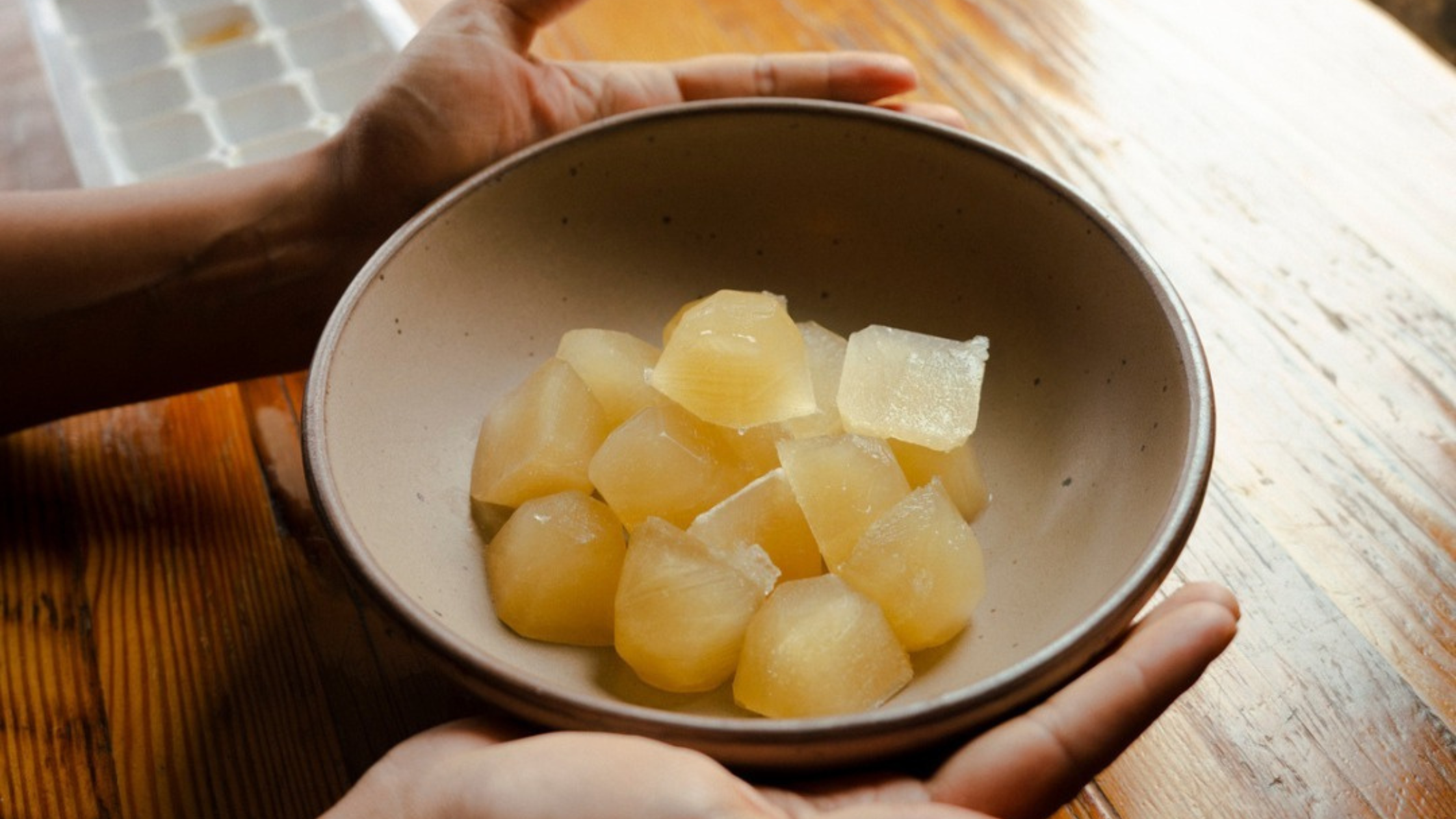Bone broth for infants: How Much Is Right To Serve?
Bone broth for infants: How Much Is Right To Serve?
Blog Article
The aImportance of Healthy Food: Why Bone Broth Is an Excellent Selection for Babies
When it comes to your infant's nourishment, every selection matters. Bone broth stands out as a nutrient-dense choice, providing essential vitamins and minerals that sustain growth and advancement. Its rich structure not only help food digestion however likewise boosts the immune system. Comprehending exactly how to integrate this flexible food into your baby's diet regimen can set the phase for healthy and balanced eating habits. What are the finest means to introduce bone broth to your little one?
Nutritional Advantages of Bone Broth for Infants
When you present bone broth to your baby's diet regimen, you're providing a nutrient-dense food that offers countless wellness benefits. Packed with crucial nutrients, bone broth has calcium, magnesium, and phosphorus, which support your infant's expanding bones. It's likewise rich in collagen, helping in the growth of healthy and balanced skin, joints, and connective tissues.
Additionally, bone broth is an excellent source of amino acids like glycine and proline, which play a substantial role in general development and muscle advancement. These nutrients aid promote a solid body immune system, establishing a solid foundation for your child's health.
Furthermore, bone broth is very easy to absorb, making it a mild choice for your child. By including this wholesome food into their dishes, you're ensuring they receive necessary nutrients necessary for their general wellness. Go ahead and make bone broth a staple in your baby's diet regimen!
Just How Bone Broth Sustains Digestion
Bone broth is loaded with necessary nutrients that can truly profit your infant's food digestion. It promotes digestive tract health and assists with nutrient absorption, making it an excellent addition to their diet. By incorporating bone broth, you're setting the phase for a healthier gastrointestinal system.
Nutrient-Rich Composition
One of the most nutrient-rich foods you can introduce to your baby's diet is bone broth, which is packed with essential minerals and amino acids that sustain healthy digestion. Rich in collagen, bone broth helps reinforce your baby's gut lining, making it easier for their body to take in nutrients. By integrating bone broth right into your child's meals, you're giving them a wholesome food that nurtures their gastrointestinal system successfully.
Promotes Gut Health
As you introduce bone broth into your baby's diet, you'll locate it not only nurtures however also promotes intestine wellness effectively. Rich in gelatin, bone broth aids calm the gastrointestinal system, minimizing inflammation and sustaining a healthy digestive tract cellular lining. Additionally, the amino acids found in bone broth, such as glycine, help in food digestion and can help protect against typical belly problems.
Aids Nutrient Absorption
Presenting bone broth not only supports digestive tract health and wellness however likewise plays a considerable duty in helping nutrition absorption. When you give your baby bone broth, you're providing a rich source of minerals and amino acids that boost their digestive procedures. The gelatin in bone broth assists to soothe the intestine lining, enhancing its ability to take in crucial nutrients.
Reinforcing the Body Immune System With Bone Broth

By incorporating bone broth right into your child's diet, you're providing an all-natural resource of nutrition that promotes wellness. Take into consideration making bone broth a staple in your infant's meals, as it can play an important role in their immune health and wellness and development.
Easy Ways to Include Bone Broth Into Infant's Diet regimen
Including bone broth right into your infant's diet regimen can be easy and gratifying. You can likewise make use of bone broth as a base for soups or stews that you prepare for the household, ensuring your child obtains a taste of delicious, healthy dishes.
Another option is to offer bone broth by itself. Cozy it up and click here for more info use it in a sippy cup or little bowl-- it's a great way to present brand-new flavors. If your infant delights in grains, take into consideration cooking rice or quinoa in bone broth as opposed to water for additional nourishment. You can ice up bone broth in ice cube trays, making it very easy to add a dice to various dishes whenever you desire. These approaches will certainly aid your infant profit of bone broth effortlessly!
Homemade vs. Store-Bought Bone Broth: What to Pick
Which is much better for your infant: homemade or store-bought bone broth? Self-made bone broth provides you total control over the ingredients. You can pick top notch bones, natural veggies, and herbs, ensuring your infant obtains one of the most nutrients without additives or chemicals. Plus, making it in your home can be a gratifying experience, permitting you to bond with your infant while preparing wholesome food.
On the other hand, store-bought choices are practical and conserve you time. They usually consist of chemicals and may not match the deepness of taste and nutrition you obtain from homemade broth. If you go with store-bought, seek brands that are natural and devoid of additives.
Ultimately, if you have the moment and resources, homemade bone broth is the remarkable option for your baby's health. If you're short on schedule, choose a top quality store-bought alternative as a back-up.
Age-Appropriate Bone Broth Offering Pointers
As your baby grows, it's essential to customize bone broth serving ideas to their developing stage. For infants around 6 months, start with a couple of spoonfuls of diluted bone broth (where to get bone broth).
By the time your little one is click this link around a year old, think about offering bone broth as a standalone drink or mixing it into soups and stews. Simply make sure to maintain the broth reduced in sodium.
Various Other Healthy And Balanced Foods to Couple With Bone Broth for Babies
When you're looking to boost the dietary value of bone broth for your infant, take into consideration combining it with nutrient-dense vegetables like carrots and spinach. Whole grain choices, such as quinoa or brown rice, can also add texture and fiber. Additionally, incorporating healthy protein sources like shredded chicken or lentils will certainly complete the meal well.

Nutrient-Dense Vegetables
Nutrient-dense veggies are a wonderful addition to bone broth for infants, enhancing both taste and nourishment. Integrating veggies like carrots, spinach, and wonderful potatoes can boost the vitamin and mineral material of your broth. Carrots supply beta-carotene for healthy vision, while spinach is loaded with iron and calcium, important for development. Pleasant potatoes include natural sweet taste and are rich in fiber, assisting digestion.
You can quickly blend these veggies right into the broth or offer them as soft, prepared pieces alongside it. This not only introduces brand-new tastes however additionally encourages your kid to appreciate a selection of nutrients. By pairing nutrient-dense veggies with bone broth, you're laying the foundation for a healthy diet right from the beginning.
Entire Grain Options

Healthy And Balanced Protein Resources
Bone broth pairs splendidly with numerous healthy and balanced protein sources, further enhancing your infant's diet. Attempt including soft, cooked lentils; they're nutrient-dense and jam-packed with healthy protein. You can likewise blend in shredded chicken or turkey, which are easy for your youngster to absorb. If you're searching for plant-based alternatives, consider mashed tofu or pureed chickpeas-- both offer superb protein without overwhelming flavors. Eggs, when introduced safely, are an additional great selection; they're versatile and packed with nutrients. Inevitably, blending in some well-cooked quinoa can include a great structure and extra healthy protein. By incorporating these healthy protein resources with bone broth, you're providing your baby a balanced, beneficial dish that sustains their development and development.
Often Asked Concerns
Can Bone Broth Reason Allergies in Infants?
Yes, bone broth can trigger allergies in infants, particularly if they're delicate to particular ingredients. Constantly consult your pediatrician before introducing new foods and display for any kind of indications of allergies after feeding.
Just How Should Bone Broth Be Kept for Babies?
You must save bone broth in impermeable containers, either in the refrigerator for approximately a week or in the fridge freezer for as much as 3 months. organic bone broth. Constantly thaw it correctly prior to serving to your infant
Is It Safe to Give Bone Broth to Premature Infants?
It's vital to consult your doctor prior to presenting bone broth to early infants. They'll analyze your child's details health and wellness demands and ensure it's secure, considering their special nutritional needs i thought about this and developmental phase. Always focus on professional guidance.
What Are the Indicators of Intolerance to Bone Broth in Babies?
When presenting bone broth, look for indicators like fussiness, rash, looseness of the bowels, or throwing up. If your child shows any one of these responses, it's best to seek advice from a pediatrician prior to continuing to offer it.
Can Bone Broth Be Used as a Dish Replacement for Infants?
No, you shouldn't use bone broth as a dish substitute for infants. It lacks essential nutrients required for their growth. Instead, incorporate it into their diet regimen alongside balanced meals for added sustenance and taste.
Report this page